You have 3 free guides left 😟
Unlock your guides8.10 The African American Civil Rights Movement (1960s)
6 min read•june 18, 2024
Robby May
Dalia Savy
Robby May
Dalia Savy
Earlier in this unit, we discussed the early steps in the Civil Rights Movement in the 40s and 50s. We discussed the impact of and the early actions took to push this movement forward. He is best known for his role in the advancement of civil rights using nonviolent civil disobedience based on his Christian beliefs.
Martin Luther King Jr.
The Letter from Birmingham Jail
In 1963, Martin Luther King Jr. began a massive protest in Birmingham, Alabama, one of the South’s most segregated cities. Public marches aimed at integrating public facilities and opening up jobs for Blacks quickly led to police harassment and many arrests, including that of King himself.
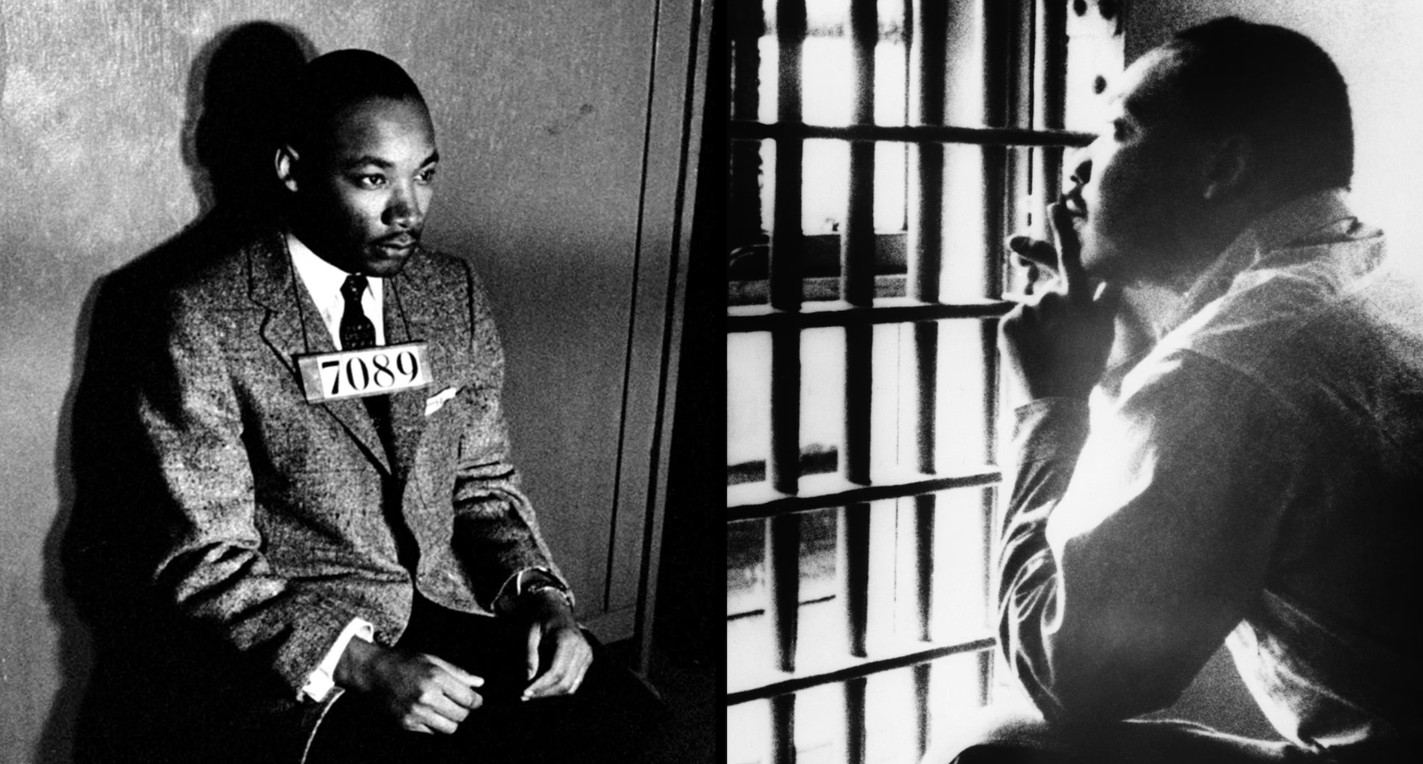
Writing from his cell in Birmingham, he penned his famous , outlining his vision for peaceful non-resistance. It was a clear response to a public statement made by eight White Alabama clergymen who criticized his actions and questioned the need for civil rights demonstrations.
In this letter:
- His message to Southern whites was clear and unmistakable: “We will match your capacity to inflict suffering with our capacity to endure suffering. We will meet your physical force with soul force. We will not hate you, but we will not obey your evil laws. We will soon wear you down by pure capacity to suffer.” This would be called peaceful nonresistance.
- His ultimate goal was to unite the broken community through the bonds of Christian love. He hoped that non-violence would appeal to the white middle class.
- He outlined that in any nonviolent campaign, there were four basic steps: a collection of the facts to determine whether injustices are alive, negotiation, self-purification, and direct action.
- He also expressed disappointment in the white clergy, with whom he had hoped and expected to find allies.
- He stated that through painful experiences, they knew that freedom is never voluntarily given by the oppressor.
"It’s easy for those who have never experienced segregation to say 'wait', but when you have seen vicious mobs lynch your mothers and fathers at will and drown your sisters and brothers at whim when you have seen hate-filled policemen curse, kick, and brutalize and even kill your black brothers and sisters with impunity when you see the vast majority of your 20 million Negro brothers smothering in an airtight cage of poverty in the midst of an affluent society….then you will understand why it’s difficult to wait." -MLK
In May, 6000 children marched in place of the jailed protester, in what was called the , and authorities broke up the demonstration with clubs, police dogs, and high-pressure water hoses that were strong enough to take the bark off a tree.
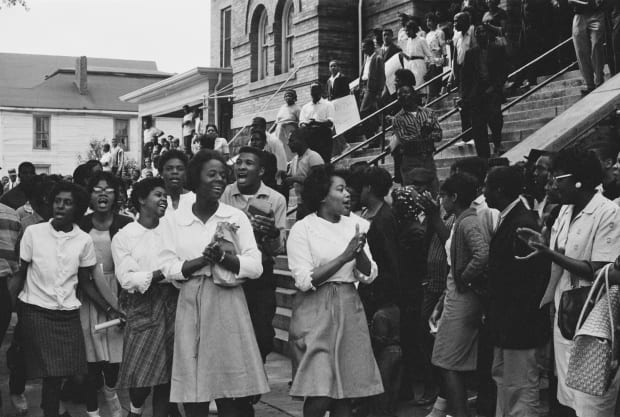
The horrified nation watched scene after scene of this brutality on national television. The Kennedy administration quickly intervened to arrange a settlement with Birmingham civic leaders that ended the violence and granted protestors their demands. Kennedy finally ended his long hesitation and sounded a call for action.
March on Washington
Civil rights leaders kept the pressure on the administration. They scheduled a massive for August 1963. More than 200,000 marchers gathered for a daylong rally in front of the Lincoln Memorial, where they listened to hymns, speeches, and prayers for racial justice. The climax was MLK’s “I Have a Dream” speech.
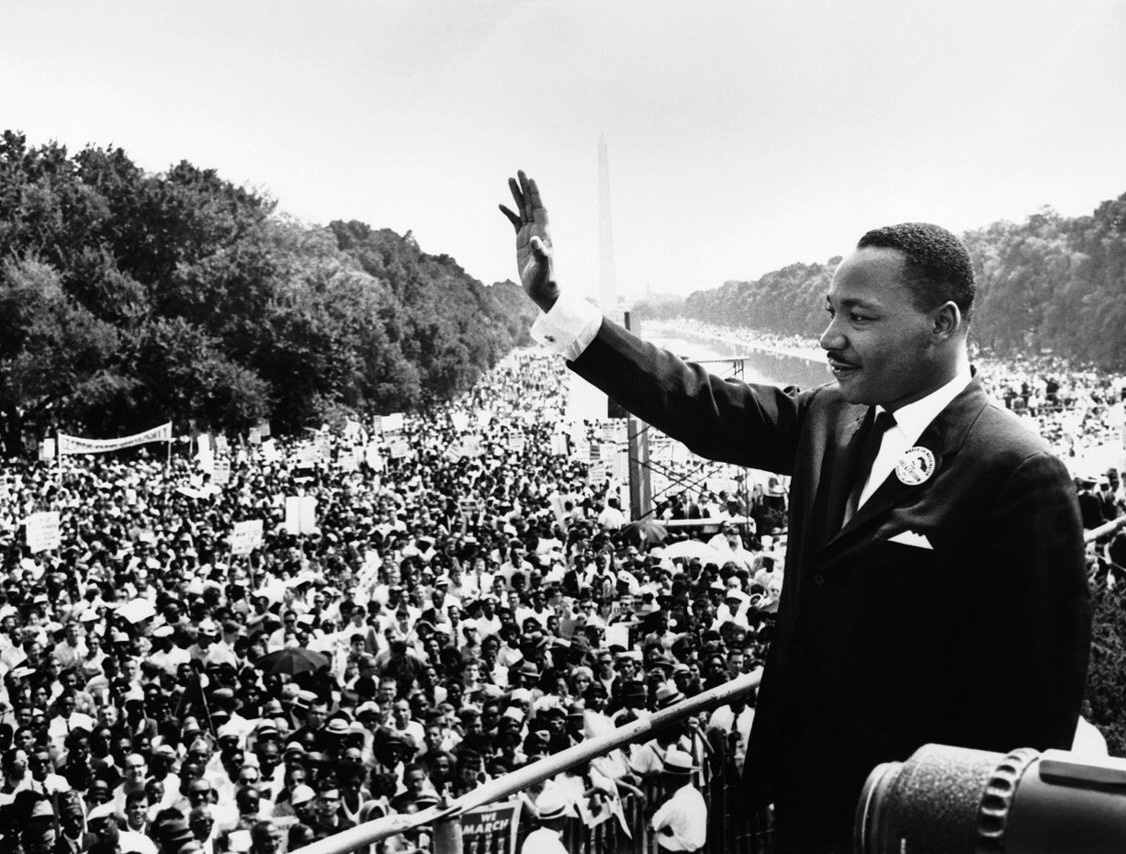
The speech is famous for King's use of repetition and his vision of a future where all people would be judged by their character and not by the color of their skin. Here are a few quotes that highlight his message:
“Now is the time to rise from the dark and desolate valley of segregation to the sunlit path of racial justice.”
“I have a dream that my four little children will one day live in a nation where they will not be judged by the color of their skin but by the content of their character.”
“Let us not seek to satisfy our thirst for freedom by drinking from the cup of bitterness and hatred.”
The Civil Rights Act of 1964
After Kennedy’s death, in an address to Congress, LBJ asked Congress to enact Kennedy’s tax and civil rights bills as a tribute to the fallen leader stating, “Let us here highly resolve that John Fitzgerald Kennedy did not live or die in vain.”
Johnson had managed to persuade both a majority of Democrats and some Republicans in Congress to pass the 1964 Civil Rights Act, which:
- Made racial discrimination illegal in hotels, motels, restaurants, and other places of public accommodation.
- Forbade discrimination in employment on the basis of race, color, national origin, religion, or gender.
- Created the to monitor and enforce protections against job discrimination.
- Provided for withholding federal grants from state and local governments and other institutions that practiced racial discrimination.
- Strengthened voting rights legislation.
- Authorized the U.S. Department of Justice to initiate lawsuits to desegregate public schools and facilities. A Georgia motel owner refused service to African Americans and challenged the law. He claimed it exceeded Congress’s authority and violated his constitutional right to private property as he saw fit. In , the Court agreed with Congress that it had the right to create the legislation under interstate commerce.
In 1964, the was ratified, which abolished the practice of collecting a poll tax, a measure which had discouraged poor people from voting.
Selma to Montgomery Marches
MLK, concerned that three million southern blacks were still denied the right to vote, chose Selma, Alabama as the site for the next phase of the civil rights movement. Intimidation and literacy tests still limited the number of registered African American voters. King had focused attention on Selma, Alabama, a town where blacks made up about 50% of the population, but only 1% of registered voters. To protest this inequity, King organized a march from Selma to Alabama’s capital, Montgomery.
Alabama state troopers violently blocked the mostly black marchers at the as they tried to cross the Alabama River. Mounted police beat these activists and fired tear gas into the crowd. Two Northerners died in the incident. The media offered vivid images that brought great attention to the issue of civil rights.
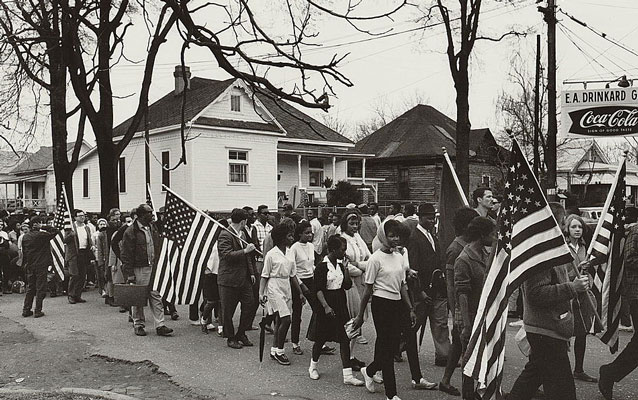
The president ordered the Alabama National Guard to federal duty to protect the demonstrators, had the Justice Department draw up a new voting rights bill, and personally addressed Congress on civil rights.
The Voting Rights Act of 1965
Congress passed the which prohibits discriminatory voting practices. It banned literacy tests in states and counties where less than half the population had voted in 1964 and provided federal registrars in these areas to assure African American voting rights. By the end of the decade, African American voters in the US. .had risen from 40% to 65%. The Act was signed into law by President Lyndon B. Johnson on August 6, 1965.
Malcolm X
Seeking a new cultural identity based on African and Islam heritage, the Black Muslim leader Elijah Muhammad preached Black nationalism, separatism, and self-improvement. The movement attracted thousands of followers by the time a young man became a convert while serving in prison. He eventually adopted the name .
Leaving prison in 1952, Malcolm X acquired a reputation as the movement’s most controversial voice. He criticized King as “an Uncle Tom” (subservient to white) and advocated self-defense using black violence to counter white violence. Eventually, he left the Black Muslims and moved away from defending violence, but he was assassinated by black opponents in 1965.
Black Power
Some advocated for “” and racial separatism. Their leader called for African Americans to form their own institutions, credit unions, co-ops, political parties, and even write their own history. In 1966, the Blank Panthers were organized as a revolutionary socialist movement advocating self-rule for American blacks.
They advocated for the release of all black people from jail, the payment of compensation for time served in prison, and the end of police brutality. They also sought to establish community control of schools, housing, and healthcare in black neighborhoods.
Assassination of MLK
In April 1968, the nation went into shock over the news that King, while standing on a motel balcony in Memphis, Tennessee, had been shot and killed by a white man. Massive riots erupted in 168 cities across the country, leaving at least 46 people dead. The violence fed a growing “white backlash” especially among white blue-collar voters, to the civil rights movement, which was soon reflected in election results.
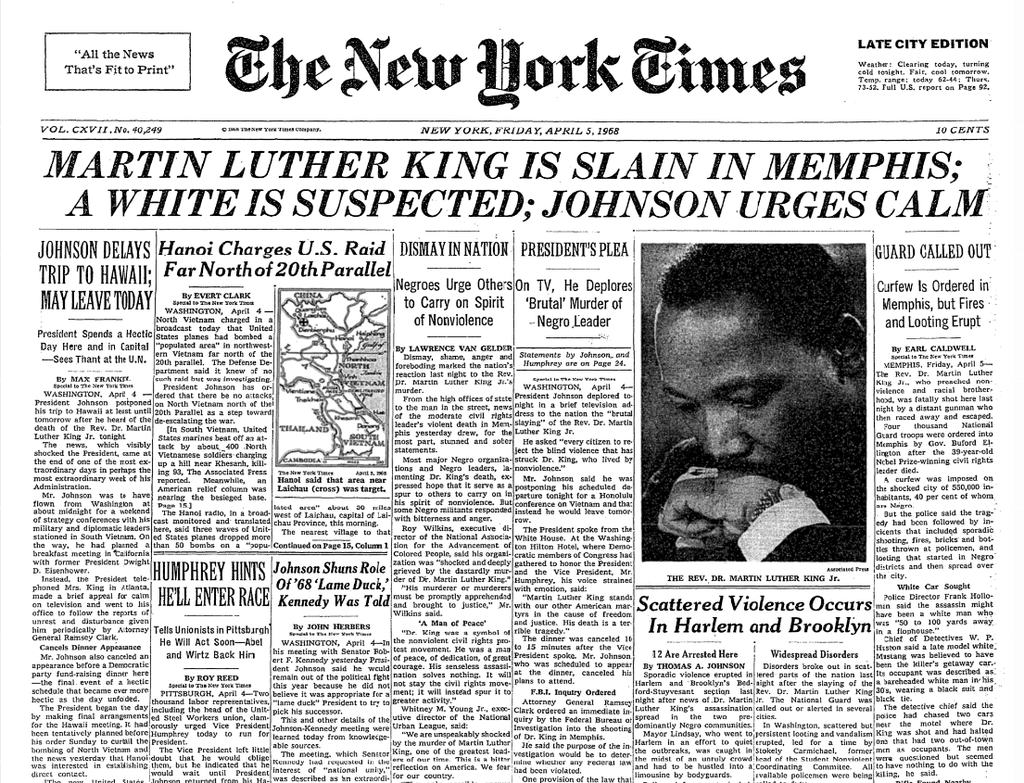
© 2024 Fiveable Inc. All rights reserved.
AP® and SAT® are trademarks registered by the College Board, which is not affiliated with, and does not endorse this website.
